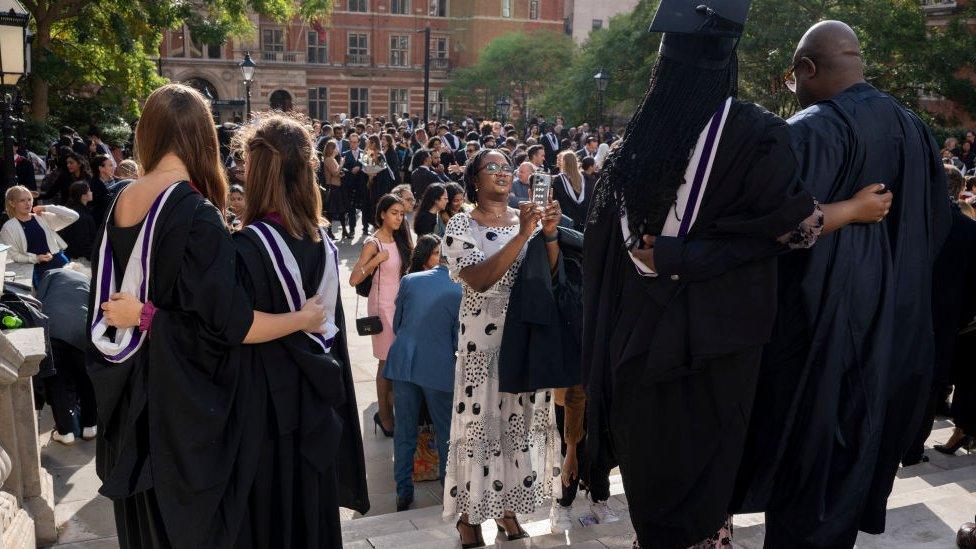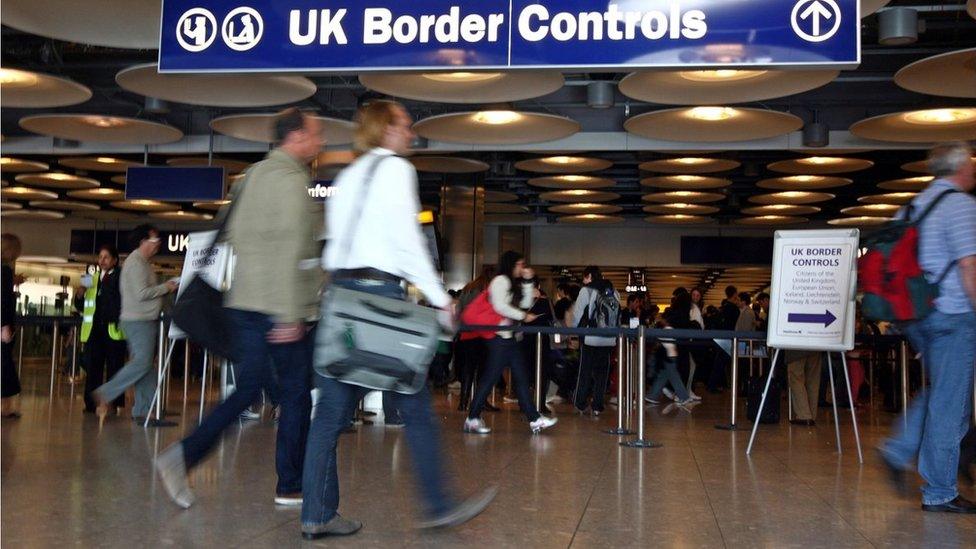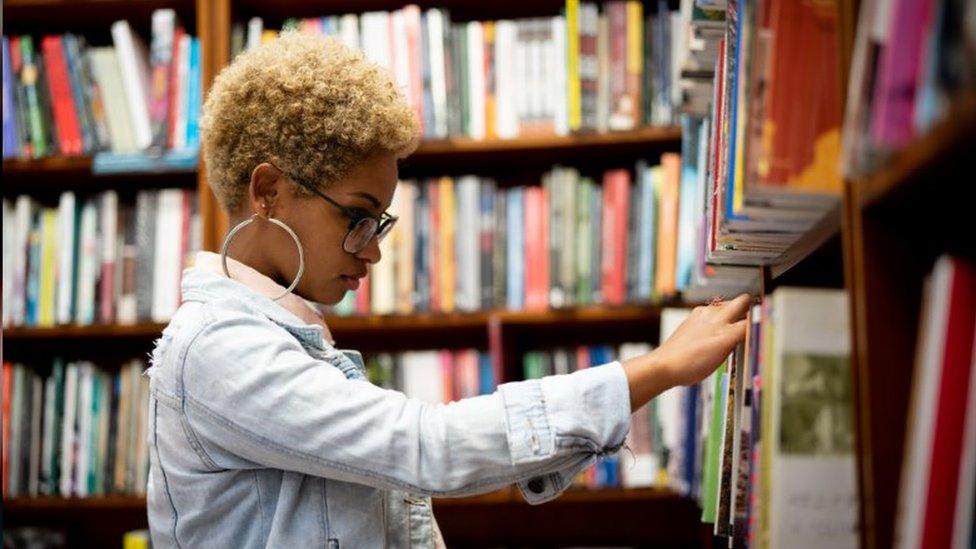Rishi Sunak considers restrictions on foreign students to curb migration
- Published

Rishi Sunak is considering curbs on foreign students taking "low quality" degrees and bringing dependents, Downing Street said.
The PM's spokesman said the idea was being looked at after official figures showed net migration to the UK had climbed to a record half a million.
But they declined to define a "low quality" degree or to "pre-empt" any policy decisions.
A government migration adviser warned it would bankrupt many universities.
The Times has reported, external that plans to bring down numbers could include restricting admissions to top universities, as well as restricting visas for students' dependants.
Home Secretary Suella Braverman has previously complained about foreign students "bringing in family members who can piggyback onto their student visa" and "propping up, frankly, substandard courses in inadequate institutions".
But moves to reduce foreign student numbers could meet resistance in other parts of Whitehall.
Chancellor Jeremy Hunt last week insisted immigration was required to boost growth, adding that there had to be "a long-term plan if we're going to bring down migration in a way that doesn't harm the economy".
He said migration would be needed "for the years ahead - that will be very important for the economy".
The Department for Education could raise concerns over universities' funding if the number of high fee-paying international students is cut.
An adviser on immigration policy has warned some universities could go bankrupt if there is a clampdown on so-called "low-quality" degrees.
Chair of the government's Migration Advisory Committee, Professor Brian Bell, told BBC Radio 4's Today programme this could "send many universities over the edge," particularly in poorer regions.
'Cash cows'
He said: "Most universities for most courses lose money on teaching British students and offset that loss by charging more for international students.
"If you close down the international route I'm not sure how the university continues to survive."
He said London, Cambridge and Oxford would continue to do well but "what about Newcastle, what about the north-east, the north-west, Scotland?"
He also warned that the policy could result in a "massive increase" in British students' fees to make up for the loss of foreign students' payments.
The National Union of Students (NUS) said it would be "laughable" if the government made it harder for international students to study in the UK, given the country's skills shortage.
It accused ministers of "starving" higher education of funds, while encouraging the exploitation of foreign students as "cash cows through astronomical fees and violent visa regimes".

Number of international students at UK universities
2016/17: 450,835 - 19.0% of total
2017/18: 469,160 - 19.4%
2018/19: 496,110 - 20.2%
2019/20: 556,625 - 22.0%
2020/21: 605,130 - 22.0%
Tuition fees paid by international students to UK universities
2016/17: £6.63bn - 37.3% of total
2017/18: £7.37bn - 38.7%
2018/19: £8.28bn - 40.8%
2019/20: £9.41bn - 42.9%
2020/21: £9.95bn - 42.4%
Source: The Higher Education Statistics Agency

Mr Sunak's official spokesman insisted the PM supported Britain's universities which were "some of the very best in the world".
But he was also "fully committed" to bringing overall immigration levels down, blaming "unprecedented and unique circumstances" for the record high.
The official said: "We're considering all options to make sure the immigration system is delivering, and that does include looking at the issue of student dependants and low-quality degrees."
Scotland's Deputy First Minister John Swinney described the proposals as "stupid", and Education Minister Jamie Hepburn warned they would be "deeply damaging to Scotland's world-class university sector".
The Scottish National Party has consistently praised the contribution made by foreign students and other migrants to Scotland.
Official figures show around 504,000 more people are estimated to have moved to the UK than left in the 12 months to June 2022, up sharply from 173,000 in the year to June 2021.
The Office for National Statistics (ONS) said the jump was driven by "unique" factors including visa schemes for Ukrainians and Hong Kong citizens, and students arriving from outside the European Union.
People arriving on study visas accounted for the largest proportion of long-term immigration of non-EU nationals, at 277,000, or 39% of the total, according to the ONS.
The government has promised to cut net migration - the difference between the numbers entering and leaving the UK.
Ms Braverman has said she wants to revive a repeatedly missed target to reduce net migration to below 100,000.
Related topics
- Published24 November 2022

- Published25 November 2022
- Published6 July 2020
